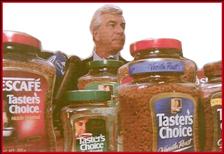As we mention in our post entitled Gift Cards: The Updated Chart is Still Free, a New Jersey Bill (A3002), effective July 1, 2010, has now amended and expanded New Jersey’s Unclaimed Property Act (the "Act") to apply to stored value cards. But don’t be lulled into a false sense of security. The Act, as amended, defines "stored value card" as any "record that evidences a promise, made for monetary or other consideration, by the issuer or seller of the record that the owner of the record will be provided, solely or a combination of, merchandise, services, or cash in the value shown in the record, which is pre-funded and the value of which is reduced upon each redemption. The term ‘stored value card’ includes, but is not limited to the following items: paper gift certificates, records that contain a microprocessor chip, magnetic stripe or other means for the storage of information, gift cards, electronic gift cards, rebate cards, stored-value cards or certificates, store cards, and similar records or cards."
As it relates to unclaimed property and as amended, the Act includes a presumption of abandonment after two years of inactivity and a presumption that if the issuer does not have the address of the purchaser, the address is deemed to be New Jersey, if the card was purchased in New Jersey. We leave to your assessment and future court battles whether this violates the Supreme Court’s decision in Texas v. New Jersey, 379 U.S. 674 (1965), which rejected a transactional priority rule for reporting unclaimed property.
What is curious about the amended Act is that, although it is an "unclaimed property" statute, it now contains significant stored value card (e.g., gift card) provisions. The Act prohibits imposition of dormancy fees and, presented here in simplified summary form, exempts stored value cards issued: (i) under a promotional, loyalty or charitable program for which no monetary or other consideration has been tendered; (ii) by an issuer (or "family" of issuers) that sold stored value cards with an aggregate face value in the previous year of $250,000 or less; and (iii) any business or class of businesses that the State Treasurer decides to exempt (see section 5(f) of AB 3002).
But what is most perplexing about the amended Act is that it cross-references New Jersey’s current Gift Card Law (see New Jersey Attorney General – Gift Cards & Gift Certificates), and provides that only a stored value card that is exempt from the Unclaimed Property Act shall be considered a gift card or gift certificate for purposes of the Gift Card Law. Now if you want the analysis of what the original Gift Card Act covers and how the "exemption" essentially neuters much of that definition, replacing it with the new "stored value" reference – well you are going to have to call Keri Bruce or me. Bottom line, the amended Act effectively and significantly alters the definition of a gift card and gift certificate under New Jersey law.
More significantly, this inter-relationship between New Jersey’s amended Unclaimed Property Act and its Gift Card Law demonstrates the complexity of developing a legally compliant gift card and gift certificate program. Now, in the United States at least, an issuer (and sometimes the seller) must comply with the U.S. Federal Credit Card Act of 2009; the gift card and gift certificate laws on the state level; the applicable escheat, abandoned or unclaimed property laws; and an increasingly complex and often perplexing overlap between one or more of these statutes, sometimes, as is the case in New Jersey, including complexities within the same state.
Need help? Feel free to contact Keri Bruce or Joseph I. ("Joe") Rosenbaum, or the Rimon lawyer with whom you regularly work. We are all happy to help.



